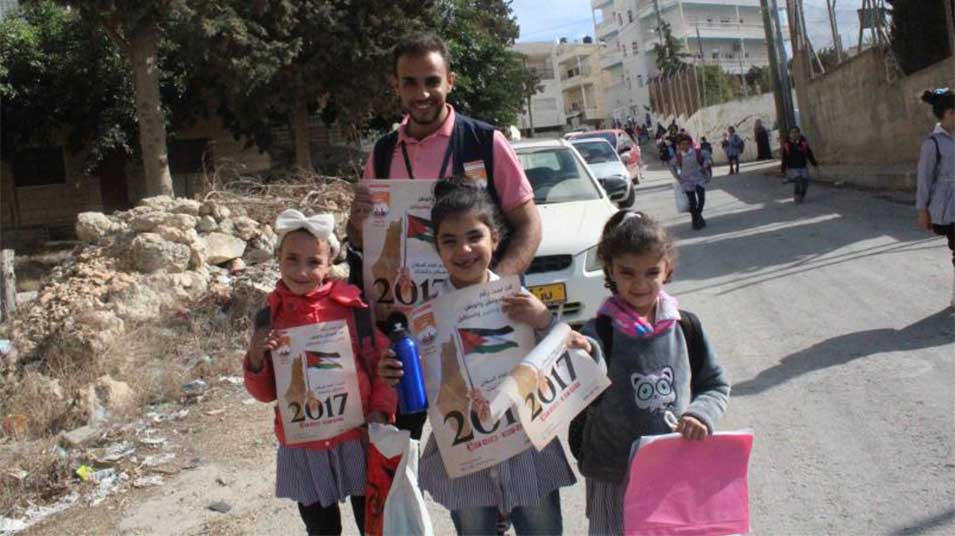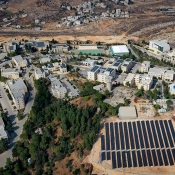BZU students conclude their work in the Population, Housing, and Establishment census
Birzeit University students wrapped up their participation in the Ramallah and Al-Bireh governorate Population, Housing, and Establishment census, thereby concluding the census processing phase and unveiling the first electronic census in Palestine.
Dean of Students Affairs and Palestinian Central Bureau of Statistics (PCBS) handler at Birzeit University Dr. Mohammad Al Ahmad noted that the university endeavored to achieve this national duty by providing a student cadre to undertake the census duties. The university, added Dr. Al Ahmad, facilitated the PCBS’s task by supplying an adequate number of students, outfitting the necessary rooms for training, and providing the technical and logistical measures needed to complete this assignment.
Dr. Al Ahmad highlighted the students’ participation in the census. He said, “Students benefitted from practical, real-world experiences by participating in the census, benefits which complemented the theoretical aspect of learning. This field work will also provide the students with a view of the inner-workings of the PCBS, as well as a certificate of experience, monetary rewards, and community work hours once their jobs are done.”
Assistant Director of the PCBS in Ramallah and Al-Bireh Governorate Ashraf Hamdan noted that the main purpose of the census is to provide numbers and statistics: “The census is carried out every ten years; the previous cycle we’ve carried out was the 1997-2007 census cycle. In this census, we’ve utilized tablet devices instead of relying on paper documents and forms, which saved us a lot of time and effort in data entry and protected the data from loss or damage.”
“Researchers and students,” added Hamdan, “carried out their tasks in a methodologically-precise manner. We’ve also implemented aerial photography for buildings and facilities and reflected the captured photographic features on the maps. The tablet devices also contain a tracking system for field researchers, which helps us ascertain that the researchers are carrying out their tasks accurately.”







